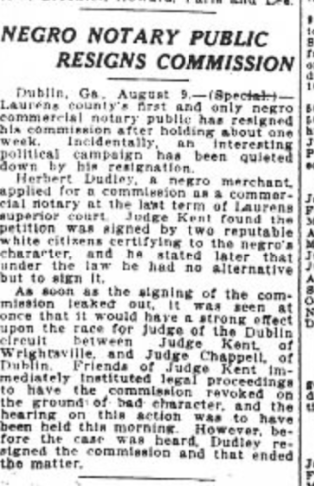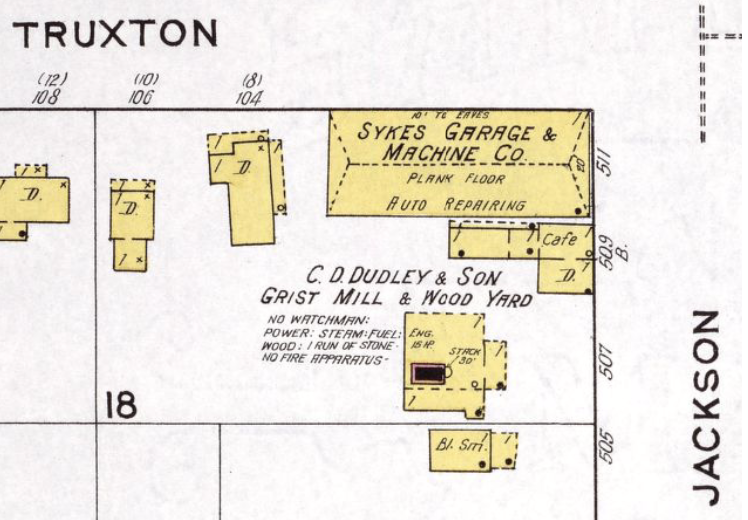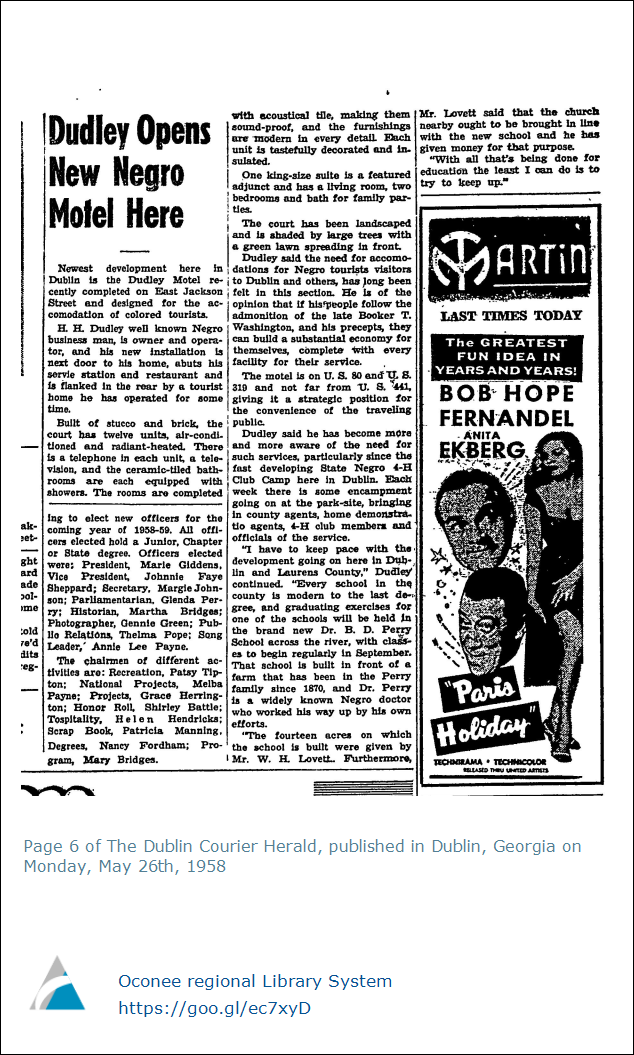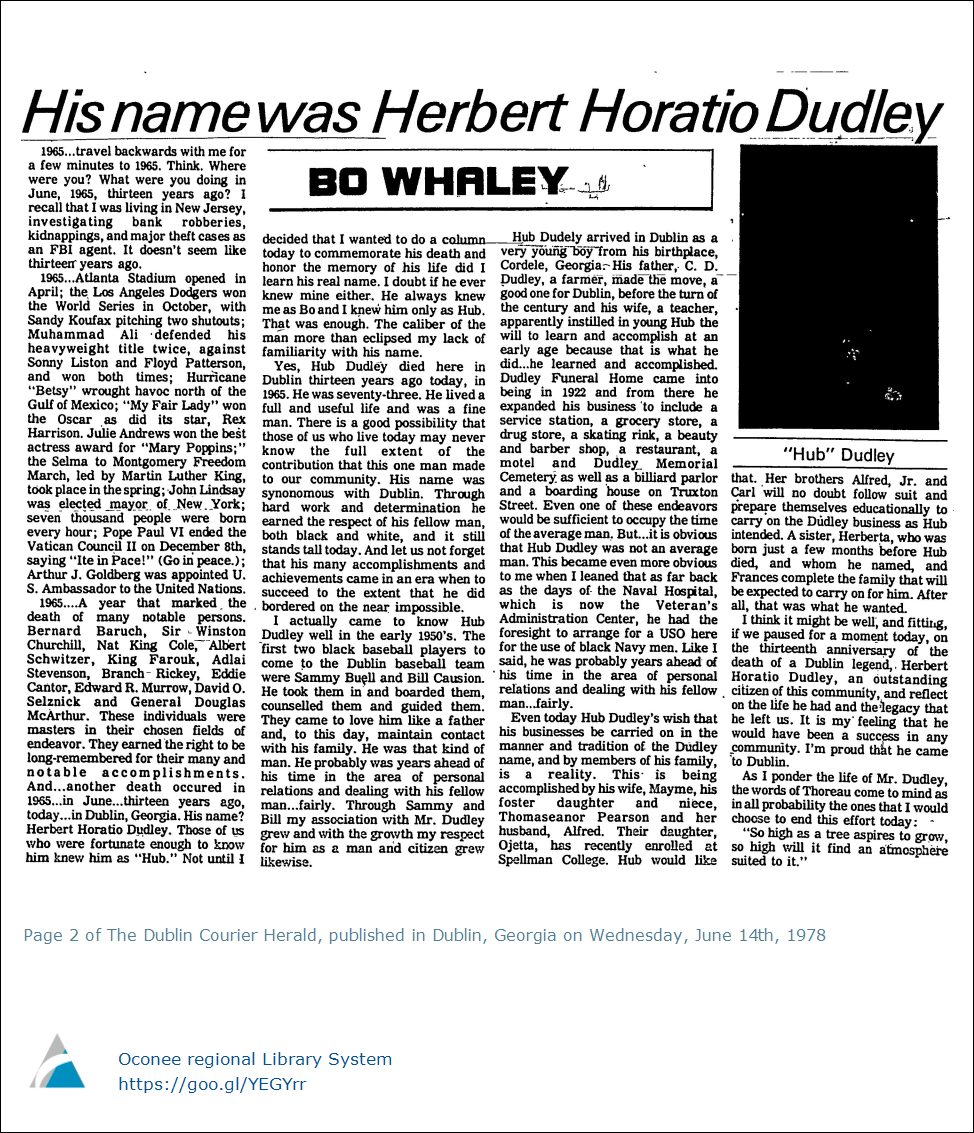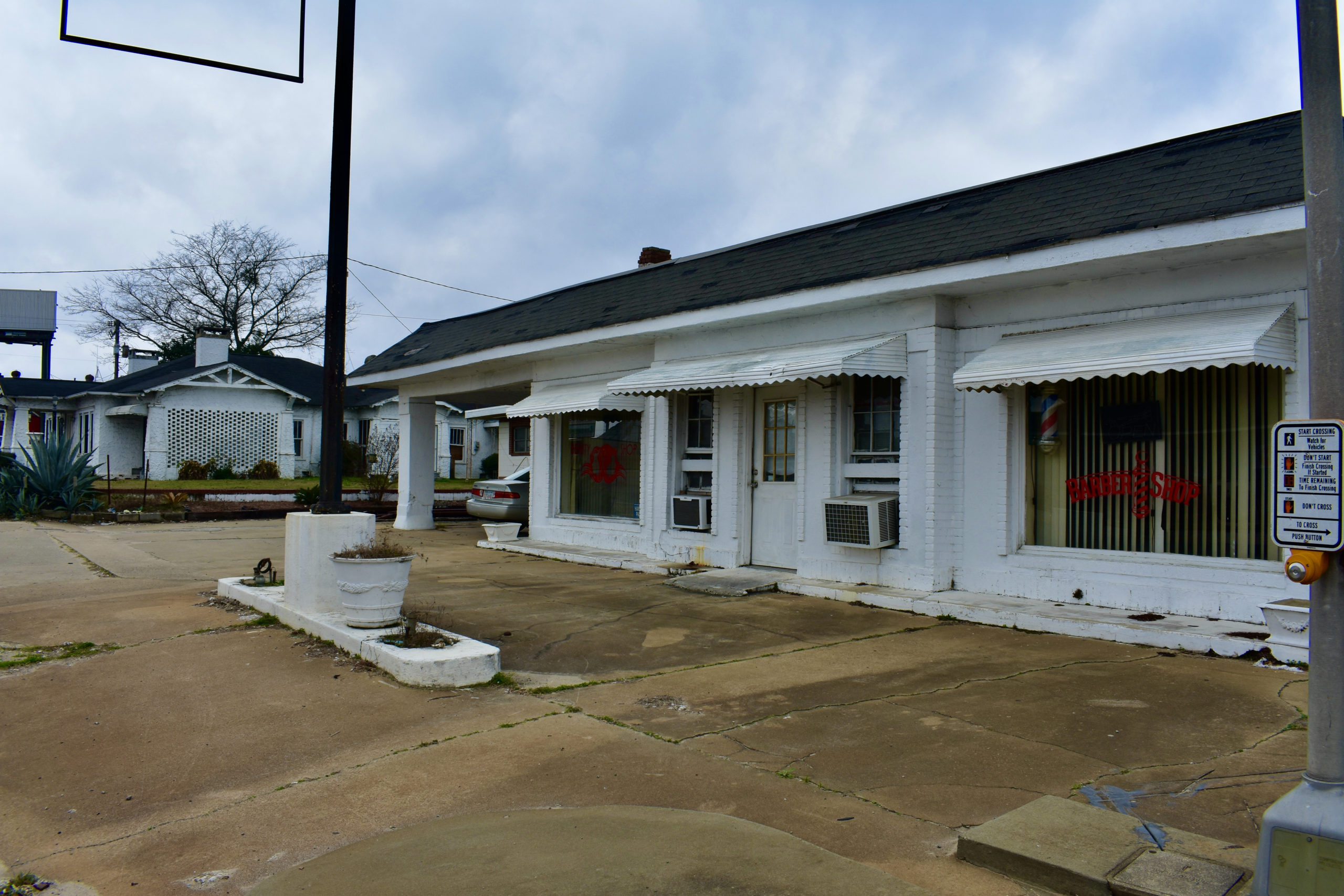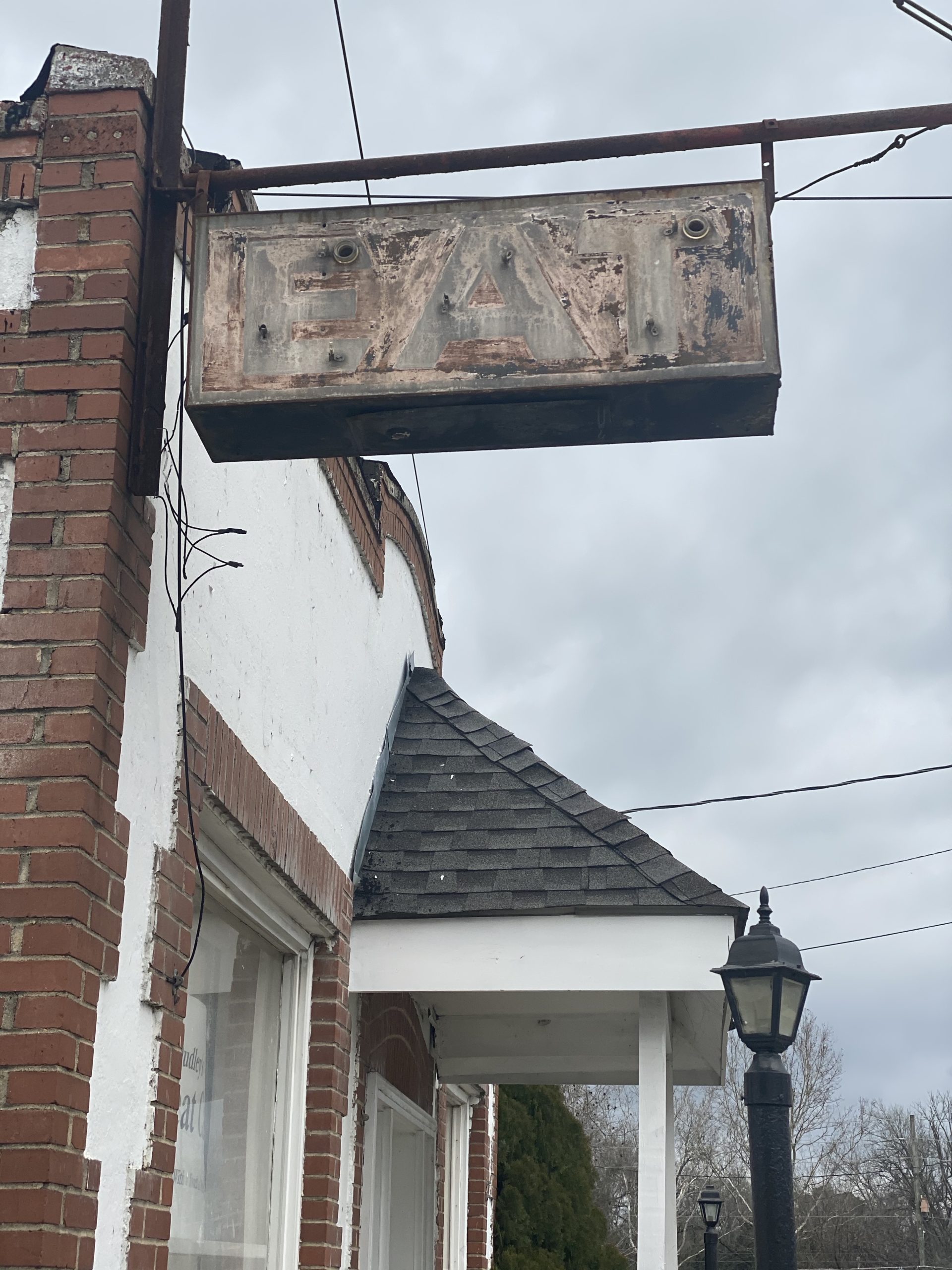
Please note: This is private property. Please do not enter the property, but rather experience it respectfully from the sidewalk.
Herbert “Hub” Horatio Dudley
The man and the story behind Dudley Motel is so much larger than the three structures standing at the corner of East Jackson Street and Truxton Street in Downtown Dublin, Georgia. Herbert “Hub” Dudley’s story begins on this corner, where he and his father, Carl, operated C. D. Dudley and Son Grist Mill and Wood Yard. It continues up East Jackson Street where he opened Dudley’s Funeral Home in 1922, which is still family owned today. Dudley’s first business in that same building was C D. Dudley & Sons, General Merchants, a dry goods & meat market. Clayton, Katie, and their son, Herbert, founded C.D. Dudley & Son, Undertakers & Embalmers, in 1922. The business expanded with the creation of Laurens County Casket Company, where wood and fabric caskets were manufactured and distributed across Georgia. By the 1940’s the business had grown to occupy the entire East Jackson building, and the dry goods store moved to the Amoco Station. In 1934, Dudley established Dudley Memorial Cemetery as an answer to the need for an African American cemetery that was accessible in any weather. A flurry of businesses on Madison Street in the Cummings Building offered Cooper’s Hat Shop, Dudley’s Shoe Shop, Thomasenor’s Beauty and Barber Shop, and a bathhouse.
Dudley’s story is more than history. It’s the story of how a man and his family made their mark on a community, Georgia, and the nation. Travel deeper into Dudley’s history at https://www.hubdudley.org
Dudley’s Motel, Cafe, & Amoco Service Station is our destination. Hold on for a fascinating and heart felt journey through an era where one man did his best to better the lives of all he touched, regardless of the color of their skin. They were many.
Dudley Motel
As with each of Dudley’s businesses, Dudley Motel was built to fill a void in the African American community. In 1958, Dudley Motel opened with much fanfare. Established to provide lodging, respite, and provisions to African Americans traveling US Highway 80, a primary thoroughfare across the Southeast, Dudley Motel, Cafe, and Amoco #2 service station were featured in the travel guides, Go and Green Book, Negro Motorist Green Book, & the Amoco Oil publication, Go Guide to Pleasant Motoring.
The 12 room motel offered televisions, private bathrooms, and as former Atlanta mayor Andrew Young remembers,”Whatever they needed, he (meaning Dudley) knew where to get it. And he’d tell you where to stop in the next town, or whichever way you were going.” Fifteen year-old Martin Luther King, Jr. came to Dublin in 1944 to participate in an oratorical contest, which he won. MLK Monument Park now stands at the entrance to Downtown Dublin honoring where the dream began. Years later, King, along with other Civil Rights leaders, often stayed at Dudley’s Motel on East Jackson Street, then the major east-west traffic artery through Georgia.
“The Retreat” Cafe
The original “EAT” sign, with its remnants of neon, still hangs today.
To accommodate the black officers, Dudley contracted to operate the USO (United Service Organizations) location, hence called the “Retreat”. After the WWII efforts concluded, the restaurant continued as a public offering with food and entertainment featuring such well known acts as Rosetta Tharpe, Little Richard Penniman, and James Brown. In addition to a full menu with a short order cook, the Retreat offered a full Coca-Cola fountain, ice cream bar, a doughnut machine, and a JukeBox. It also had a “private” dining room. Its location on the main highway in the center of Georgia became a well-known stop on the way to everywhere on every trip for blacks as there were few other options for gas, food, or lodging.
Amoco Service Station #2
In September 1936, African American businessman, Herbert Horatio “Hub” Dudley opened the black-friendly Amoco #2 service station. At a time when blacks limited nighttime travel, Amoco #2 was open 24 hours providing fuel, restrooms, dry goods, and safety for all.
Dudley, who had become Laurens County’s first black notary public in August, 1916 worked to fundraise for and expand Dublin’s Georgia Negro 4-H Camp, which was located on the grounds of what is now Riverview Golf Course.
Downtown Dublin magazine article, courtesy of The Dublin Courier Herald telling the history of Dudley’s Shoe Shop & Richard Baker, 2016
Downtown Dublin magazine article, courtesy of The Dublin Courier Herald with the history of Dudley Motel, Cafe, & Amoco Service Station
He was a Morehouse Man: The Legacy of Brailsford Reese Braswell by Jeanne Cyriaque, courtesy of Historic Preservation Division, Department of Natural Resources Reflections, April, 2006
Read more on Dr. Brailsford Reese Braswell here.
4 Must-See African American Heritage Sites in Dublin by ExploreGeorgia.org

